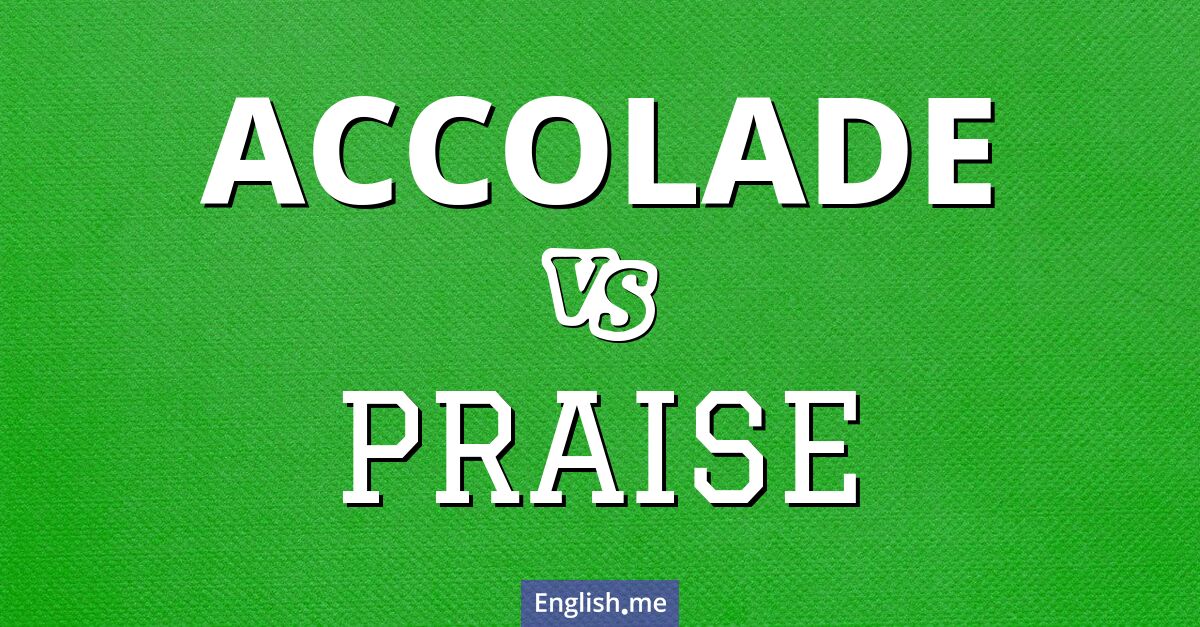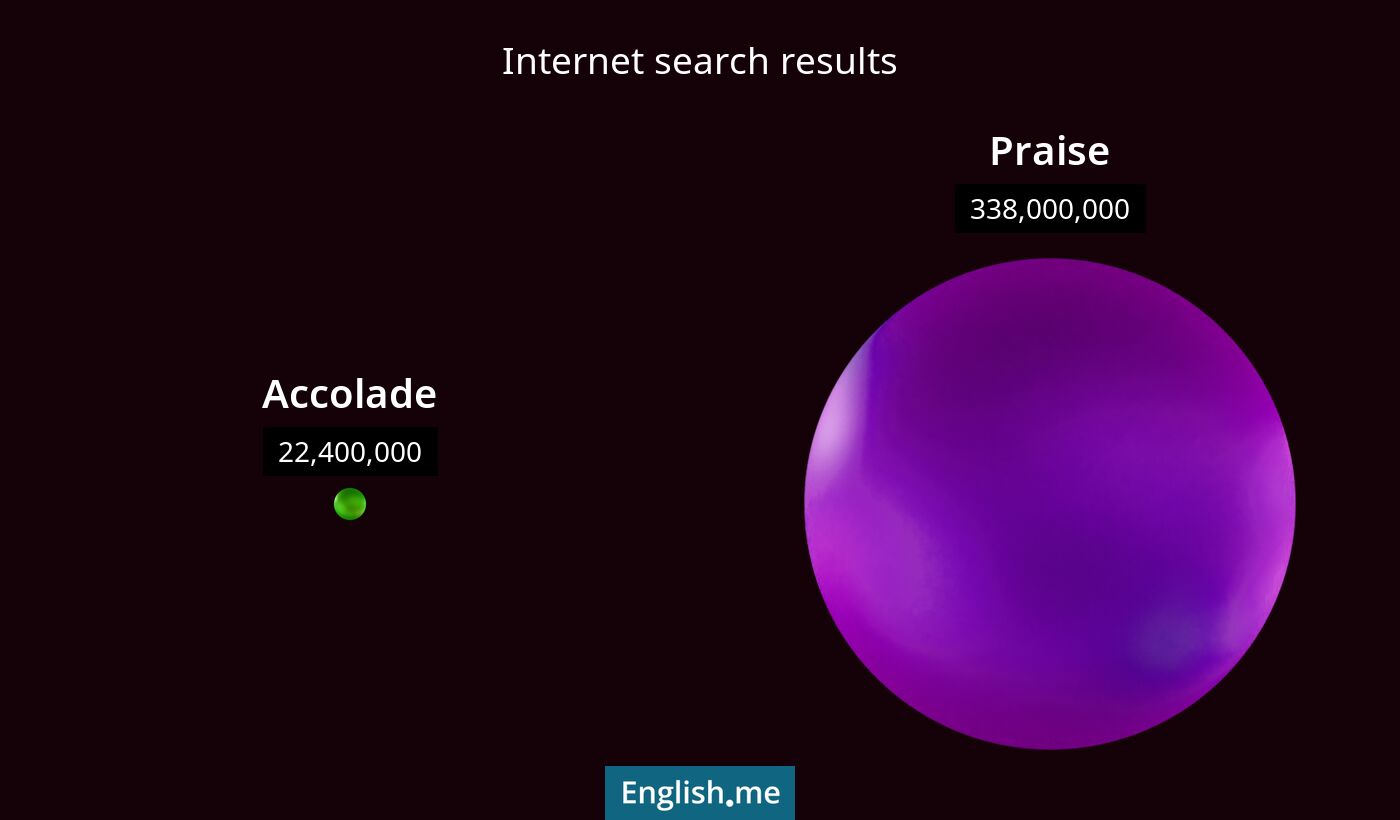Lauding language: a closer look at "accolade" vs. "praise"
Reviewed and edited by  Lloyd Cooper 08/10/2024, 17:46
Lloyd Cooper 08/10/2024, 17:46
English.me team member

 What is similar?
What is similar?
Both "accolade" and "praise" involve expressions of approval or admiration. They both imply a positive recognition of someone's achievements or qualities.
 What is different?
What is different?
"Accolade" often refers to a formal recognition or an award given to honor a person's accomplishments, whereas "praise" is a more general term used to express approval or admiration verbally or in writing and is less formal.
 Which one is more common?
Which one is more common?

 Examples of usage
Examples of usage
Accolade- She received an accolade for her outstanding performance in the play.
- The Nobel Prize is one of the highest accolades a scientist can achieve.
- His new book has earned accolades from critics and readers alike.
- The teacher praised the student for her hard work and improvement.
- He received praise from his colleagues for his innovative ideas.
- The director's latest film was praised for its stunning visuals and storytelling.

 English
English español
español française
française italiano
italiano deutsche
deutsche 日本語
日本語 polski
polski česky
česky svenska
svenska Türkçe
Türkçe Nederlands
Nederlands